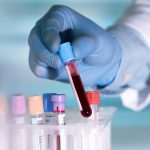With autumn in full swing and the nights closing in rapidly, it won’t be long before the clocks change plunging us all into darkness for the next 6 months.
We ask the question “Are you S.A.D. to see the sun go?” – and do the winter months have an effect on your mental and emotional health?
Hopefully we can help explain as to why you might be feeling less chirpy during the winter months, and why exactly the sun helps to turn your frown upside down.

Vitamin D or the sunshine vitamin which is actually a hormone has many positive health benefits as it is a key regulator and controls around 900 genes, or 1/24 of your entire genome.
Vitamin D turns on the expression of TPH2 (Tryptophan hydroxylase 2) which is a gene associated with mental health that converts tryptophan found in various foods into serotonin the happy hormone.
Serotonin has a wide variety of functions, from regulating your mood, happiness and anxiety, as well as learning skills and memory.
It’s also extremely important in appetite control, as well as regulating the body’s sleep cycle and internal clock.
This will be one of the main reasons as to why depression and anxiety levels skyrocket during the winter months with people suffering from S.A.D. (Seasonal Affective Disorder).

Now before you can turn tryptophan into serotonin you will need your vitamin D to have been converted effectively as vitamin D doesn’t exert it effects from being present within the blood.
This is why a blood test only tells half the story as just because a nutrient is present within the blood does not mean you are genetically converting it at the cellular level.
We all have specific genes that are responsible for various physiological functions, such as the journey that vitamin D takes before you can actually use it.
Firstly, we analyse gene CYP2R1, which encodes for an enzyme that is located in your liver, and which converts Vitamin D3 into the main circulatory form known as 1-25-dihydroxyvitamin D.
From there, it then gets transported to the kidneys then intestines where it gets absorbed by gene VDR.
Now depending on which genetic variant of CYP2R1 and VDR you have will affect your ability to convert and absorb vitamin D effectively and so increases your chances of being vitamin D deficient.
![full-width [:en]happy family in autumn[:]](https://test.muhdo.com/wp-content/uploads/2019/10/happy-family-in-fallen-leaves-150x150.jpg)
Once we know your specific conversion rate of vitamin D, we can then offer lifestyle recommendations to improve your genetic expression as simply taking more vitamin D will not work.
This may help to alleviate S.A.D. and improve your general mood and wellbeing during the winter.
What is your genetic conversion rate of vitamin D?